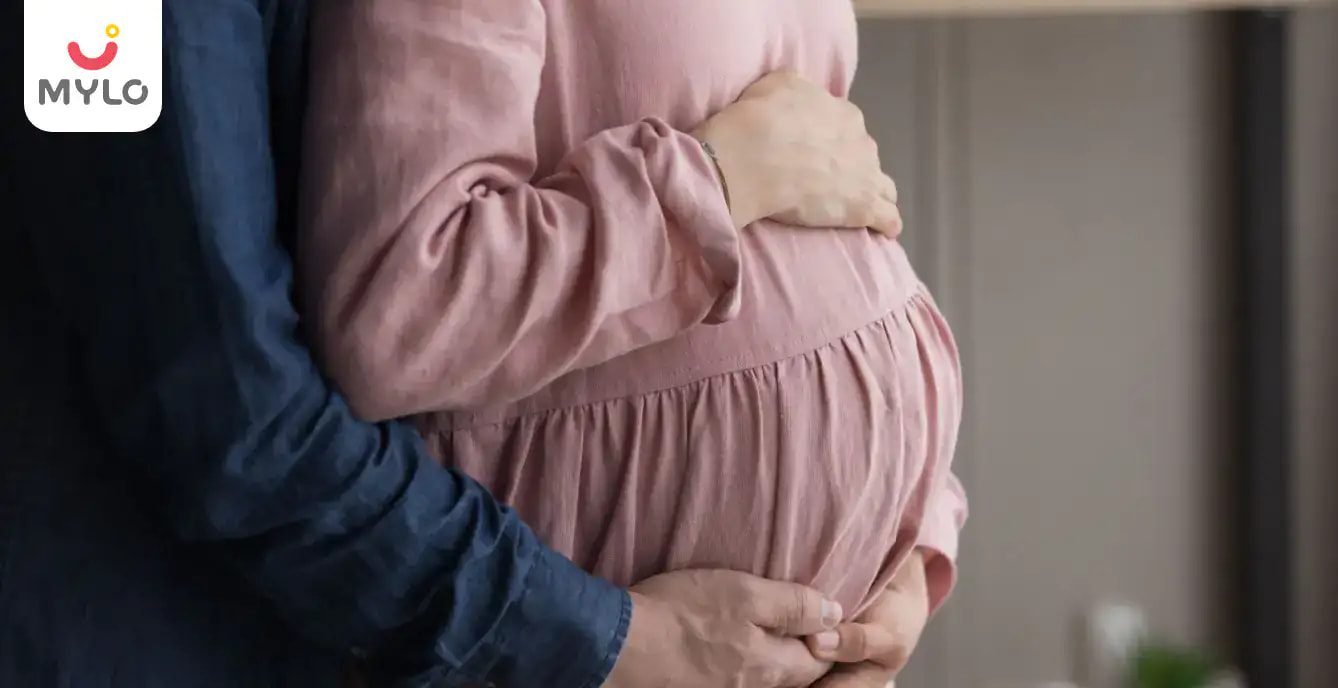- Home

- In Vitro Fertilization (IVF)

- In-Vitro Fertilization - The Process & Why is it Needed?
In this Article
In Vitro Fertilization (IVF)
In-Vitro Fertilization - The Process & Why is it Needed?
Updated on 3 November 2023
With increasing stress in today’s world, many people develop a hormonal imbalance, leading to infertility. In such cases, doctors may recommend a couple to get an IVF treatment. IVF, also known as in-vitro fertilization, can help a couple get pregnant.
In this article, we will learn more about what is IVF, who is it suitable for, the IVF treatment and its cost in India.
What is IVF?
IVF is an artificial procedure to help a woman get pregnant. It is a process where the egg and sperm are artificially fused to produce a zygote. Once the zygote is ready to be transplanted, it is placed inside the woman. The woman is generally kept on IVF medication, so her body is ready to welcome the pregnancy. The sperm or egg can be the couple’s own or a donor’s. Complete anonymity is maintained in the case of IVF with donor eggs or sperm.
You may also like: 7 Most Popular IVF Myths Busted
When Should One Get IVF?
IVF is recommended in the following cases:
1. Underlying medical problems
When there is blockage or injury to the fallopian tube, it is challenging for an egg to become fertilized or for an embryo to move to the uterus. In such a case, IVF is recommended.
2. Uterine tumors
Fibroids are benign tumors in the uterus. These are pretty common in women in their 30s and 40s. Fibroids may prevent the fertilized egg from implanting properly.
3. Ovarian dysfunction
Ovarian dysfunction or insufficiency is when a woman's ovaries are unable to function normally. When ovulation is sporadic or non-existent, fewer eggs are accessible for fertilization.
4. Unexplained infertility
Unexplained infertility is the absence of a cause of infertility despite testing for multiple reasons.
5. Chronic and systemic illnesses such as cancer
IVF treatment may be an option if you are about to begin cancer treatment that might affect your fertility. Women can have their ovaries harvested for eggs, which can then be frozen unfertilized for later use. Alternatively, the eggs might be fertilized and frozen, also known as embryo freezing.
6. Reduced sperm count or quality
Sperm may have trouble fertilizing an egg if they have low concentration, limited movement (poor mobility), or abnormalities in size and form. A consultation with an infertility expert may be required if abnormalities in the semen are discovered.
7. Endometriosis
This develops when tissue resembling the uterine lining implants and spreads outside the uterus, frequently impairing the ovaries, uterus, and fallopian tubes.
8. Genetic condition
You can be eligible for IVF if you or your spouse are at risk of passing on a genetic condition to your child. Although not all genetic issues may be detected, the eggs are checked for specific genetic problems after being extracted and fertilized. Embryos with no known issues can be placed into the uterus.
9. Before sterilization
The fallopian tubes are cut or blocked during a procedure known as tubal ligation to prevent pregnancy permanently. IVF may be a better option than tubal ligation reversal surgery if you want to become pregnant after having your tubes tied.
You may also like: Intra-Uterine Insemination Vs In Vitro Fertilization: Which is Better?
What is IVF Treatment?
IVF is a multi-step, challenging process. It takes four-six weeks on average. The IVF process encompasses the period before egg retrieval until a pregnancy test is confirmed. People choose IVF for various reasons, such as infertility problems or when one couple has a pre-existing medical condition. Some people consider IVF if previous fertility treatments haven't worked for them or if they're over 35. IVF is also a viable procedure for same-sex couples.
IVF Treatment Cost in India
IVF cost in India ranges between Rs 1 and 3 lakh. This includes the registration fee, hormones, drugs, consultation charges, the procedure, and follow-up.
Conclusion
In-vitro fertilization means the artificial insemination of male sperm and female egg outside the female’s body. The procedure is adopted by couples who haven’t been able to have children naturally, same-sex couples, or single parents. If you wish to know more about IVF treatment, visit your doctor today.
References
- Choe J, Shanks AL. (2022). In Vitro Fertilization. NCBI



Written by
pepper potts
Get baby's diet chart, and growth tips

Related Articles
Related Questions
Hello frnds..still no pain...doctor said head fix nhi hua hai..bt vagina me pain hai aur back pain bhi... anyone having same issues??

Kon kon c chije aisi hai jo pregnancy mei gas acidity jalan karti hain... Koi btayega plz bcz mujhe aksar khane ke baad hi samagh aata hai ki is chij se gas acidity jalan ho gyi hai. Please share your knowledge

I am 13 week pregnancy. Anyone having Storione-xt tablet. It better to have morning or night ???

Hlo to be moms....i hv a query...in my 9.5 wk i feel body joint pain like in ankle, knee, wrist, shoulder, toes....pain intensity is high...i cnt sleep....what should i do pls help....cn i cosult my doc.

Influenza and boostrix injection kisiko laga hai kya 8 month pregnancy me and q lagta hai ye plz reply me

Related Topics
RECENTLY PUBLISHED ARTICLES
our most recent articles

Diet & Nutrition
গর্ভাবস্থায় আলুবোখরা: উপকারিতা ও ঝুঁকি | Prunes During Pregnancy: Benefits & Risks in Bengali

Diet & Nutrition
গর্ভাবস্থায় হিং | ঝুঁকি, সুবিধা এবং অন্যান্য চিকিৎসা | Hing During Pregnancy | Risks, Benefits & Other Treatments in Bengali

Women Specific Issues
স্তনের উপর সাদা দাগ: লক্ষণ, কারণ এবং চিকিৎসা | White Spots on Nipple: Causes, Symptoms, and Treatments in Bengali

Diet & Nutrition
গর্ভাবস্থায় পোহা: উপকারিতা, ধরণ এবং রেসিপি | Poha During Pregnancy: Benefits, Types & Recipes in Bengali

Diet & Nutrition
গর্ভাবস্থায় মাছ: উপকারিতা এবং ঝুঁকি | Fish In Pregnancy: Benefits and Risks in Bengali

Diet & Nutrition
গর্ভাবস্থায় রেড ওয়াইন: পার্শ্ব প্রতিক্রিয়া এবং নির্দেশিকা | Red Wine During Pregnancy: Side Effects & Guidelines in Bengali
- ইনার থাই চ্যাফিং: কারণ, উপসর্গ এবং চিকিৎসা | Inner Thigh Chafing: Causes, Symptoms & Treatment in Bengali
- গর্ভাবস্থায় ব্রাউন রাইস: উপকারিতা ও সতর্কতা | Brown Rice During Pregnancy: Benefits & Precautions in Bengali
- Velamentous Cord Insertion - Precautions, Results & Safety
- Unlock the Secret to Flawless Skin: 7 Must-Have Qualities in a Face Serum
- Unlock the Secret to Radiant Skin: How Vitamin C Serum Can Transform Your Complexion
- Gender No Bar: 10 Reasons Why Everyone Needs a Body Lotion
- Unlock the Secret to Radiant Skin How to Choose the Perfect Body Lotion for Your Skin Type
- Top 10 Reasons to Apply a Body Lotion After Every Bath
- Communication in Toddlers: Milestones & Activities
- How to Improve Vocabulary for Toddlers?
- A Comprehensive Guide to Understanding Placenta Accreta
- Vulvovaginitis in Toddlers Causes, Symptoms and Treatment
- A Comprehensive Guide to Understanding Cerebral Palsy in Children
- Bitter Taste in Mouth During Pregnancy: Understanding the Causes and Remedies


AWARDS AND RECOGNITION
Mylo wins Forbes D2C Disruptor award
Mylo wins The Economic Times Promising Brands 2022
AS SEEN IN
















At Mylo, we help young parents raise happy and healthy families with our innovative new-age solutions:
- Mylo Care: Effective and science-backed personal care and wellness solutions for a joyful you.
- Mylo Baby: Science-backed, gentle and effective personal care & hygiene range for your little one.
- Mylo Community: Trusted and empathetic community of 10mn+ parents and experts.
Product Categories
baby carrier | baby soap | baby wipes | stretch marks cream | baby cream | baby shampoo | baby massage oil | baby hair oil | stretch marks oil | baby body wash | baby powder | baby lotion | diaper rash cream | newborn diapers | teether | baby kajal | baby diapers | cloth diapers |





